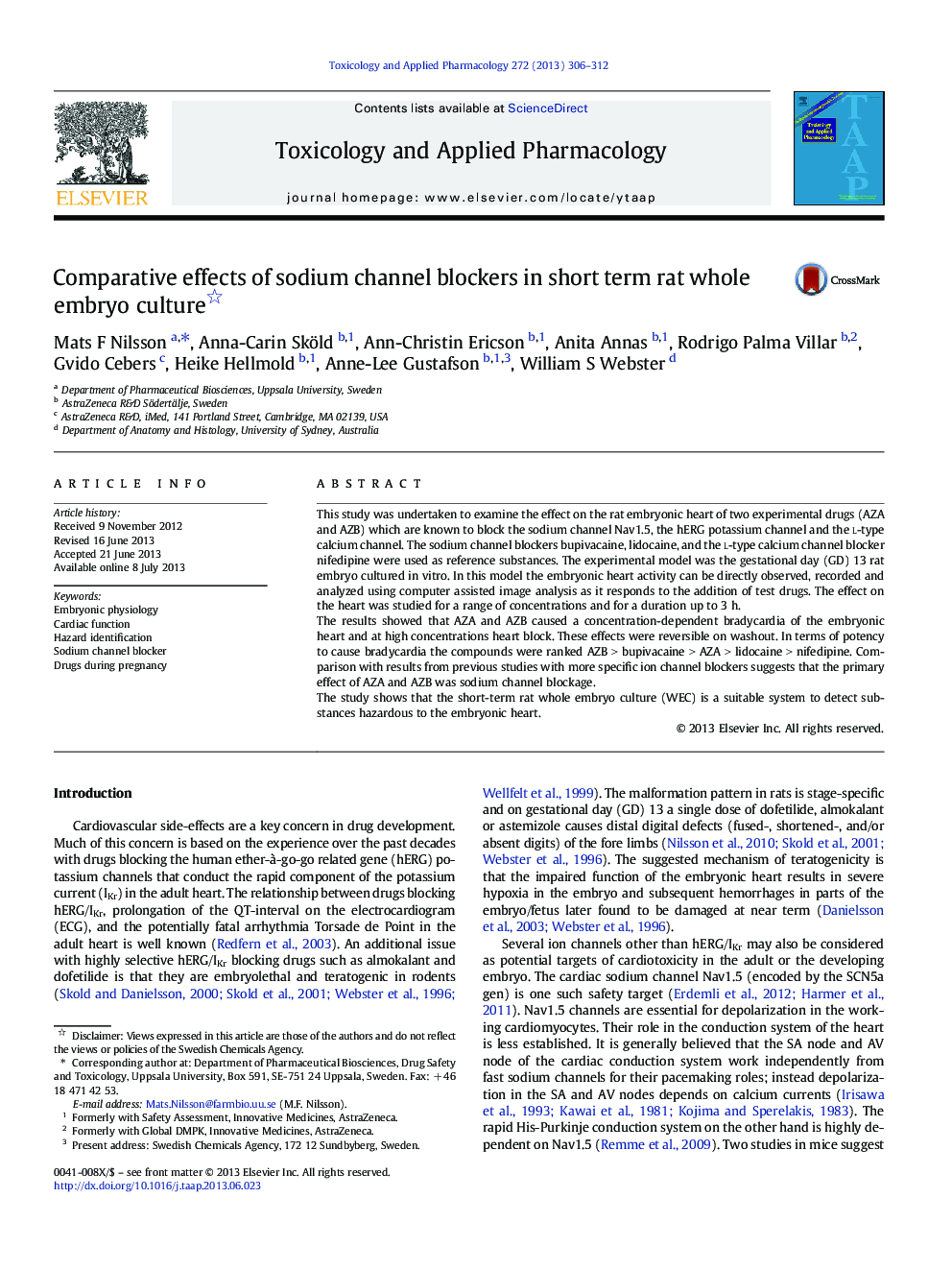| کد مقاله | کد نشریه | سال انتشار | مقاله انگلیسی | نسخه تمام متن |
|---|---|---|---|---|
| 5846639 | 1128495 | 2013 | 7 صفحه PDF | دانلود رایگان |
- Study of the effect of sodium channel blocking drugs on embryonic heart function
- We used a modified method rat whole embryo culture with image analysis.
- The drugs tested caused a concentration dependent bradycardia and heart block.
- The effect of drugs acting on multiple ion channels is difficult to predict.
- This method may be used to detect cardiotoxicity in prenatal development.
This study was undertaken to examine the effect on the rat embryonic heart of two experimental drugs (AZA and AZB) which are known to block the sodium channel Nav1.5, the hERG potassium channel and the l-type calcium channel. The sodium channel blockers bupivacaine, lidocaine, and the l-type calcium channel blocker nifedipine were used as reference substances. The experimental model was the gestational day (GD) 13 rat embryo cultured in vitro. In this model the embryonic heart activity can be directly observed, recorded and analyzed using computer assisted image analysis as it responds to the addition of test drugs. The effect on the heart was studied for a range of concentrations and for a duration up to 3 h.The results showed that AZA and AZB caused a concentration-dependent bradycardia of the embryonic heart and at high concentrations heart block. These effects were reversible on washout. In terms of potency to cause bradycardia the compounds were ranked AZB > bupivacaine > AZA > lidocaine > nifedipine. Comparison with results from previous studies with more specific ion channel blockers suggests that the primary effect of AZA and AZB was sodium channel blockage.The study shows that the short-term rat whole embryo culture (WEC) is a suitable system to detect substances hazardous to the embryonic heart.
Journal: Toxicology and Applied Pharmacology - Volume 272, Issue 2, 15 October 2013, Pages 306-312
